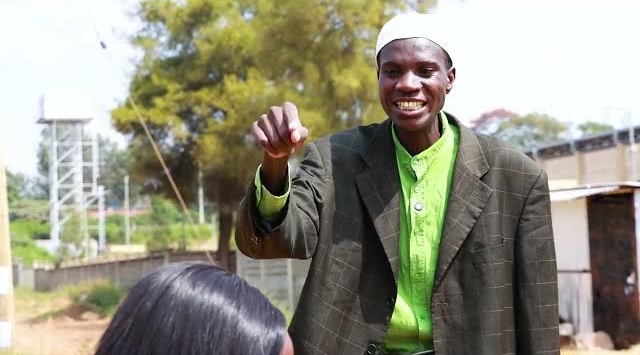On July 15, 2025, the Kenyan entertainment scene was rocked by the unexpected death of Zakaria Kariuki, popularly known as Mr. KK Mwenyewe. He passed away at Kiambu Level 5 Hospital after a brief illness. The 22-year-old comedian, celebrated for his uncanny impersonations of former Deputy President Rigathi Gachagua, had amassed over 1.1 million TikTok followers and 412,000 on Facebook with his humorous skits. His death, announced by close friend and fellow content creator Kafengo, sparked an outpouring of grief across social media, highlighting his impact on Kenya’s growing digital content creation industry.
Zakaria Kariuki hailed from Lari, Kiambu County, where his journey began not in comedy clubs but in the classrooms of Kisii University. A third-year student pursuing a Bachelor’s Degree in Applied Computer Science, Kariuki balanced academics with a passion for comedy. In 2022, his life changed when he began posting skits on TikTok under the moniker KK Mwenyewe, mimicking Gachagua’s distinctive accent and mannerisms. His videos, often filmed with minimal resources, showcased a raw talent that resonated with Kenyans. One viral clip even led him to jokingly question his mother about his paternity, noting his striking resemblance to Gachagua, a moment that endeared him further to fans. His “near-perfect grasp of Gachagua’s thick accent” made him an instant hit, earning thousands of views within days.
Kariuki’s rise was not without obstacles. In October 2022, he faced financial difficulties that threatened to derail his education. With a tuition balance of KSh 10,900, he appealed to fans for help, fearing he would have to defer his studies at Kisii University. Nairobi Governor Johnson Sakaja stepped in, clearing the debt just before the deadline, while a fundraiser led by former Kiss FM presenter Andrew Kibe raised over KSh 350,000 to support his comedy production and education. “I will use the money to buy production tools like a camera and tripod,” Kariuki said at the time, vowing to continue entertaining his audience. These acts of goodwill underscored the community support that fueled his journey, reflecting Kenya’s growing culture of crowdfunding for young talent.
Kariuki’s skits were more than entertainment; they were a form of social commentary. His impersonations of Gachagua, often dressed in a rugged tie and baggy trousers to mimic the former deputy president’s style, captured political moments with wit and authenticity. Busia Senator Okiya Omtatah, in a condolence message, praised Kariuki for “holding a mirror to society, using humor to awaken, educate, and unite.” His content, shared across platforms like TikTok and Facebook, tackled everyday Kenyan life, from job-seeking struggles to football bets, such as a viral 2023 video where he ate a kilogram of peppers after Manchester United’s loss to Chelsea. This relatability made him a household name, particularly among Kenya’s youth, who saw him as a voice for their generation.
Kariuki’s death at age 22 came as a shock, with limited details about his illness. Sources close to him reported chest complications in the days leading up to his passing, but the exact cause remains unclear. The lack of prior public knowledge about his health added to the disbelief among fans, some of whom expressed regret on social media for not checking on him sooner. “Life is fickle,” one fan noted, reflecting on a post Kariuki shared on July 4, 2025, about learning forex trading—his last before his death. The absence of a meeting with Gachagua, whom Kariuki famously mimicked, was a particular point of sorrow for fans, who felt the comedian deserved recognition from the politician who inspired his fame.
While Kariuki was celebrated for his creativity, some critics argued that his focus on political impersonation risked oversimplifying complex issues. Political satire, while powerful, can sometimes polarize audiences, though Kariuki’s lighthearted approach largely avoided controversy. His ability to blend humor with social commentary earned praise from figures like Mumias East MP Peter Salasya, who called him “a true asset” to Kenya’s content creation community. However, the rapid spread of his skits also highlighted the challenges of sustaining a career in Kenya’s competitive digital space, where creators often rely on inconsistent income streams.
Zakaria Kariuki’s legacy as KK Mwenyewe underscores the potential of Kenya’s digital platforms to amplify young voices. His story is a reminder of the need to support emerging talent, both financially and emotionally, in a country where creative industries are burgeoning. As Kenya’s content creation scene grows, with platforms like TikTok driving cultural influence, initiatives like those by Sakaja and Kibe could inspire more structured support systems, such as grants or mentorship programs, to ensure creators thrive. For now, fans and creators alike are left to honor Kariuki’s memory by celebrating the joy he brought and advocating for a future where Kenya’s young talents are nurtured to shine.
